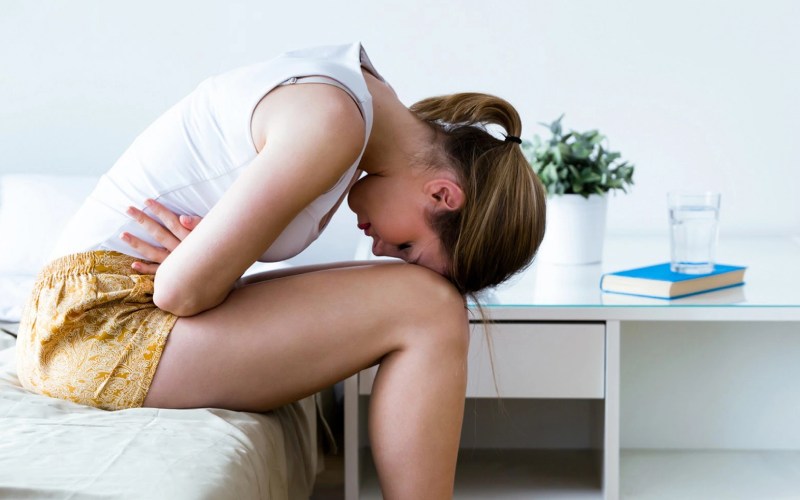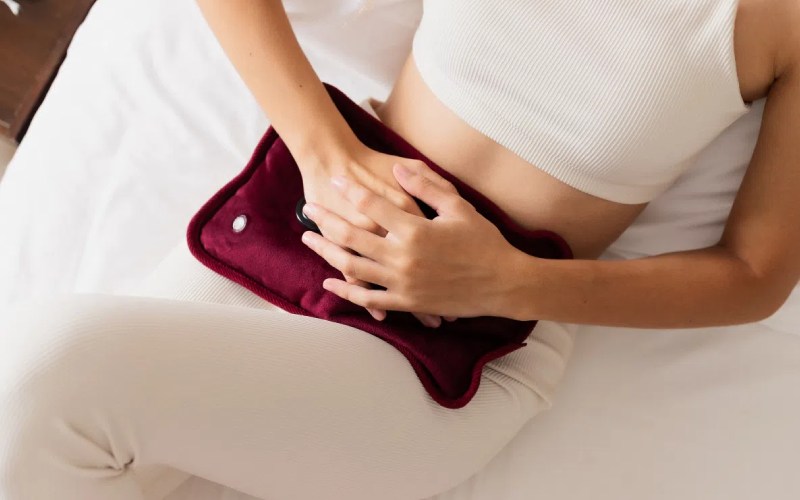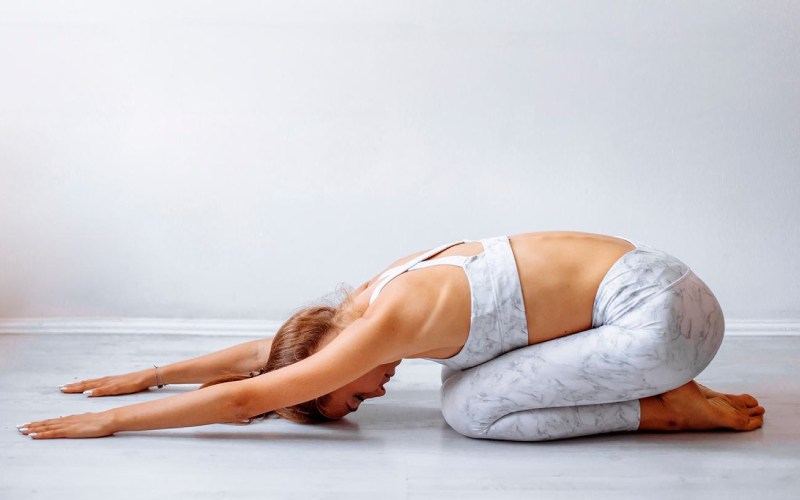Every month, many women grapple with various health issues during their menstrual cycle, such as fatigue, constipation, mood swings, and, most commonly, menstrual cramps. In severe cases, these cramps can be debilitating, leading many women to seek relief through medication. However, is it truly necessary to use menstrual pain relievers to stop period cramps? Are there alternative methods to alleviate this discomfort without medication?
1. Menstrual Cramps: A Common Burden for Many Women During Menstrual Periods
Menstrual cramps, also known as dysmenorrhea, are characterized by throbbing or cramping pains in the lower abdomen, typically occurring just before and during the menstrual period. This is a prevalent symptom among women during their monthly cycles.
These cramps can cause significant discomfort and fatigue, making it difficult for some women to concentrate on work or other activities for several days. There are multiple causes of menstrual cramps, including:
– Inadequate hydration and consumption of cold foods.
– Vigorous physical activity or prolonged sitting during menstruation.
– A narrow cervix, which can impede menstrual flow.
– Elevated levels of prostaglandins and progesterone affecting uterine muscles.
– Abnormal uterine contractions.
– The position of the uterus, either tilted backward or excessively forward, impacting menstrual blood flow.
– Gynecological conditions such as endometriosis, uterine fibroids, ovarian cysts, or pelvic inflammatory disease.

Many women use painkillers to relieve menstrual cramps.
2. Should Pain Relief Medication Be Used for Menstrual Cramps?
For women experiencing severe menstrual cramps that are nearly unbearable, pain relief medication can provide significant relief during their period.
As previously mentioned, excess prostaglandins are a primary cause of menstrual cramps. Therefore, menstrual pain relievers that reduce prostaglandin levels can be beneficial. Common medications for menstrual pain relief include:
– Non-Steroidal Anti-Inflammatory Drugs (NSAIDs): These menstrual pain relievers inhibit the production of prostaglandins, effectively reducing menstrual cramps. However, NSAIDs can cause stomach irritation and interact with other medications, so it’s important to use them cautiously and consult a healthcare provider beforehand.
– Pain Relievers: Medications containing acetaminophen (paracetamol) can help alleviate menstrual cramps.
– Oral Contraceptives: In addition to preventing pregnancy, these medications can reduce menstrual cramps by preventing ovulation and subsequently decreasing the development of the uterine lining, leading to lower prostaglandin levels.
3. Non-Medication Methods to Alleviate Menstrual Cramps
3.1. Heat Therapy
Applying heat is an effective at-home remedy for menstrual cramps. Women can use heating pads or specialized heat patches on the lower abdomen for 5-10 minutes. This method helps relax the muscles and reduce cramping. It’s important to avoid using excessively hot compresses to prevent skin burns.

Instead of immediately using menstrual pain relievers for cramps, try using a warm compress, which is effective and easy to do at home.
3.2. Diet Adjustments
During menstruation, it is beneficial for women to consume nutrient-rich foods to support overall health, such as:
– Fruits and vegetables
– Legumes
– Dark chocolate
– Yogurt
– Fish
– Ginger
– Chicken
Conversely, women should avoid certain foods and beverages that can exacerbate cramps, including:
– Red meat
– Alcohol
– Coffee
– Spicy foods
3.3. Rest
Continuous work and activities without adequate rest can be overwhelming during menstruation. Additionally, inadequate rest can affect work performance and increase stress and irritability. Women should prioritize rest, ensuring sufficient sleep and avoiding overexertion. A well-rested body can help reduce menstrual cramps.
3.4. Gentle Exercise
Contrary to popular belief, light exercise during menstruation can help alleviate cramps. Simple stretches and gentle exercises for the lower back and abdominal muscles can improve blood circulation and release endorphins, natural pain relievers that help reduce discomfort without medication.

During your period, prioritize gentle exercises to alleviate menstrual cramps and reduce fatigue and other symptoms.
3.5. Abdominal Massage
A gentle massage of the lower abdomen can also relieve menstrual cramps. Women can warm their hands and massage the area for 5-10 minutes, which helps relax the tense muscles and reduce uterine contractions.
Menstrual cramps are a common experience for many women. If home remedies do not provide relief, it is advisable to consult a healthcare provider to identify the underlying cause and determine the appropriate menstrual pain relievers. Consulting with a doctor ensures safe and effective use of medication, minimizing the risk of adverse effects.








